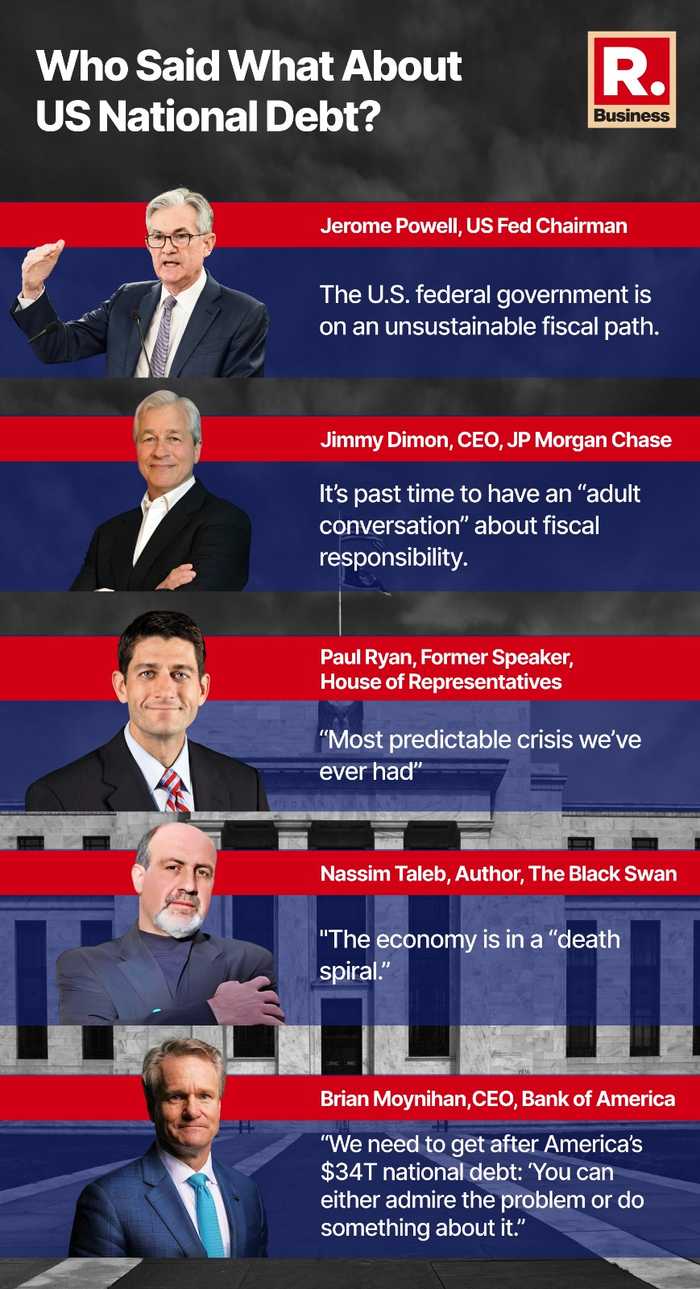Published 17:38 IST, May 2nd 2024
US' mounting debt and rising inflation contrast Biden's claim of economic growth
The US Economy is slowing down, the nation reported GDP growth of 1.6 per cent in Q1, which was far below the estimation.
- Economy News
- 4 min read
Biden on Economy: United States President Joe Biden recently shed light on the positive impact of immigration on the US economy during a fundraising event for his 2024 re-election campaign.
He attributed the growth of the US economy, in part, to the contributions of immigrants and contrasted this with what he described as xenophobia hindering the economic growth of countries like China, Japan, Russia, and India.
The International Monetary Fund (IMF) forecasted varying levels of economic growth for these countries in 2024, with Japan experiencing slower growth at 0.9 per cent and India showing stronger growth at 6.8 per cent. In comparison, the IMF predicted the United States to grow at 2.7 per cent, with immigration playing a role in expanding the labour force and contributing to economic performance.
Immigration has become a significant issue for US voters ahead of the upcoming presidential election, with concerns about irregular migration taking centre stage.

Biden, who has criticised his Republican opponent Donald Trump's anti-immigrant rhetoric, has prioritised building economic and political relations with countries such as Japan and India to counter global powers like China and Russia.
Economy in Shambles
The US Economy is slowing down, the nation reported GDP growth of 1.6 per cent in Q1, which was far below the estimation. But it is not only the growth which has caused headaches for economy watchers, the US debt has also emerged as the pain point.
The warnings from various institutions about the US national debt reaching a tipping point and potentially leading to a crisis echo concerns about the debt's unprecedented size and trajectory. Currently, the national debt is nearly equal to the entire US economy, standing at roughly $27.3 trillion, and is projected to double within the next thirty years.
Daunting Debt
The king of banking, Jamie Dimon, CEO of JPMorgan Chase, and others warn of a looming crisis if action isn't taken soon to address the mounting debt, which has surpassed $34 trillion, with a debt-to-GDP ratio of around 120 per cent.
The cautionary tales include the economic turmoil experienced by former UK Prime Minister Liz Truss in 2022, whose radical economic proposal of tax cuts and borrowing triggered market chaos, leading to her resignation after just six weeks in office. There are fears that the US could face a similar crisis if the debt continues to escalate unchecked.
Officials from institutions such as the International Monetary Fund (IMF), Congressional Budget Office (CBO), and Goldman Sachs have raised concerns about the country's soaring debt. They warn that excessive public spending and borrowing could overheat the economy and increase funding costs globally, potentially leading to a crisis reminiscent of Truss's experience.
Looming Government Shutdowns Become Routine
Just last month, the US government narrowly averted a spectre of yet another government shutdown that was looming large. The disagreements between the US Senate and the House over funding measures have prompted fears of multiple shutdowns in the recent past. Memories of the record-setting 35-day shutdown in late 2018 and early 2019, triggered by disputes over funding for a border wall, remain fresh in the minds of lawmakers and citizens alike.
The United States government operates on 12 appropriations bills passed annually by Congress. However, when these bills aren't adopted by the start of the fiscal year on October 1, temporary extensions known as continuing resolutions (CR) are passed to keep the government running. If Congress fails to agree on a CR, a funding gap occurs, leading to the shutdown of federal agencies deemed non-essential.
On March 23, the US Congress overwhelmingly passed a $1.2 trillion budget bill, keeping the government funded through a fiscal year that began six months ago and sending it to President Joe Biden to sign into law and avert a partial shutdown.
Updated 08:50 IST, May 3rd 2024